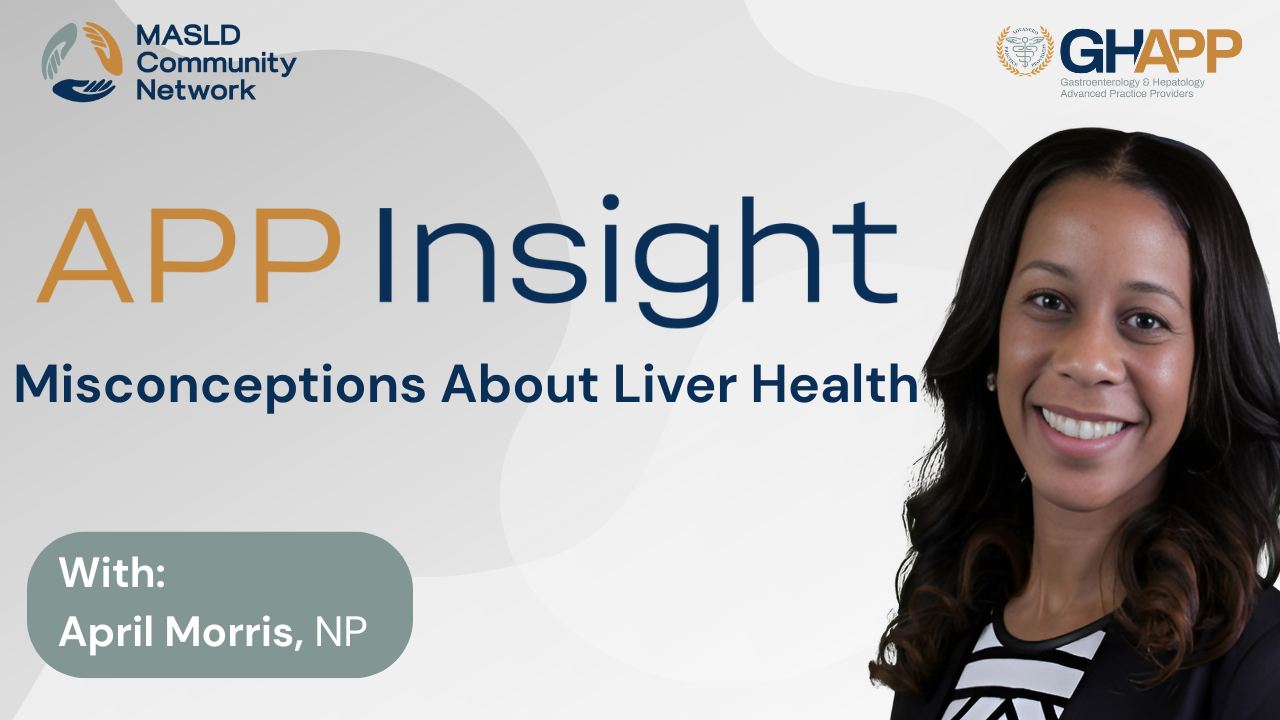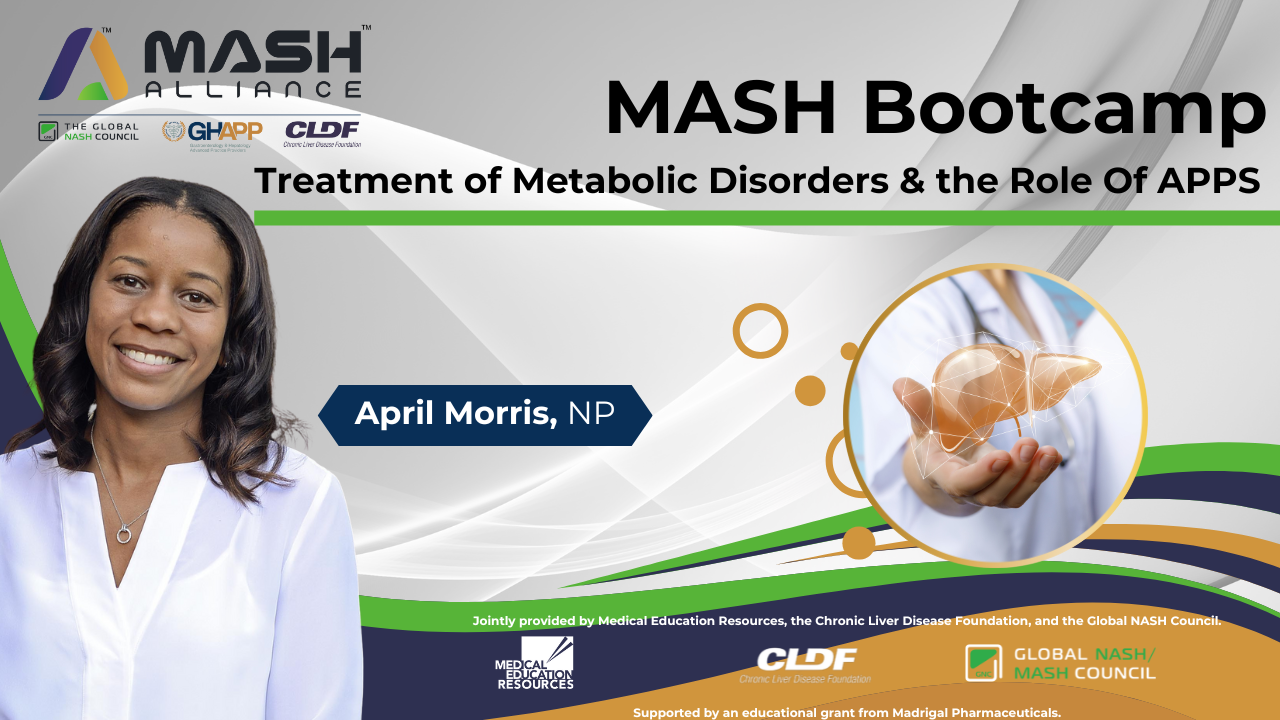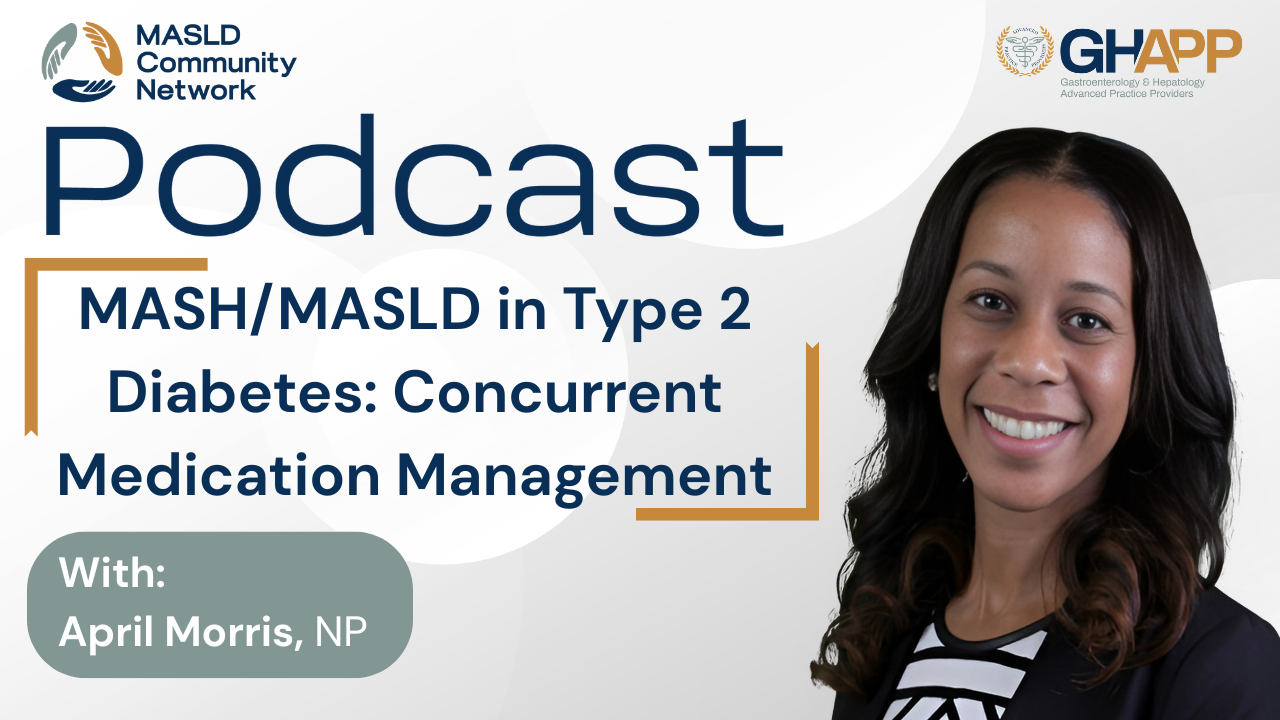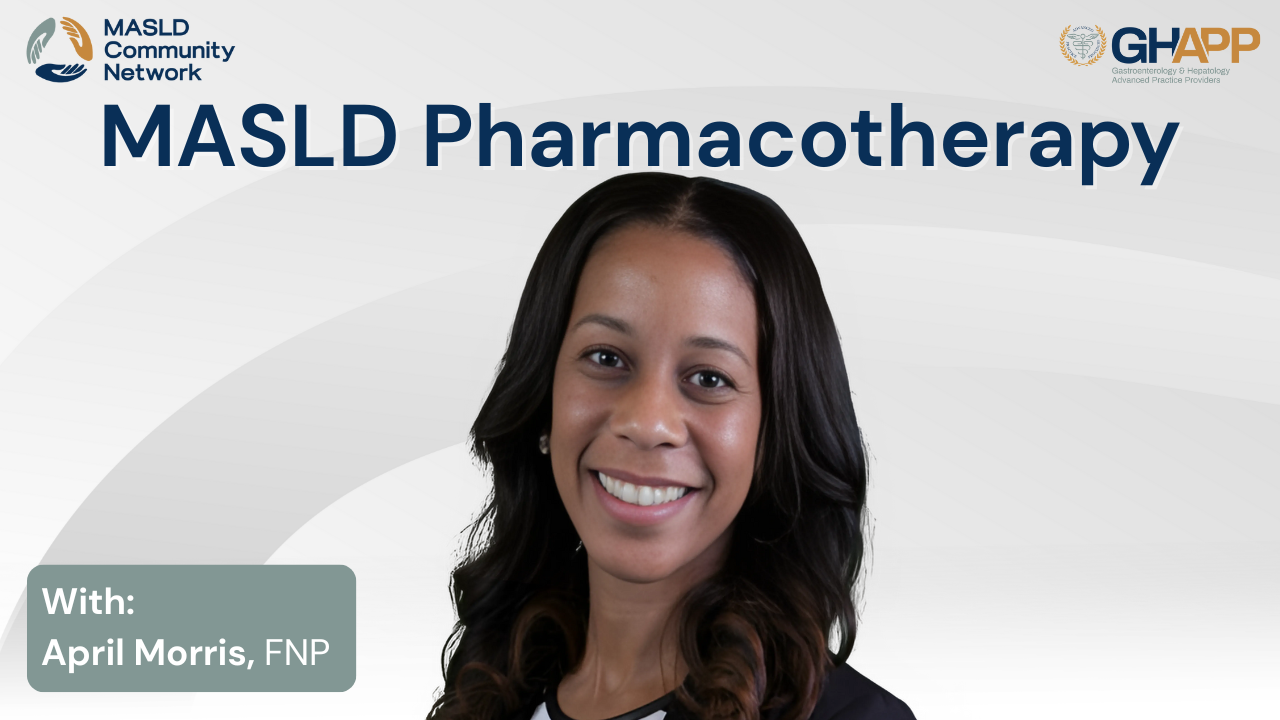
April Morris
FNP
Location : Midlothian, VA, USA
BIO
Mrs. April Morris received a bachelor of science in biology and nursing from Virginia Commonwealth University (VCU) in Richmond, Virginia. She went on to complete a master’s degree in nursing at VCU and became a board-certified family nurse practitioner in 2006. Initially, she worked in hepatology at VCU Medical Center for many years focusing on treating those patients with chronic hepatitis C. She then worked in a community hospital-based setting at the Liver Institute of Virginia in Newport News, VA and Richmond, VA for several years as the senior nurse practitioner. In this role, she gained extensive experience evaluating and managing patients with various acute and chronic liver diseases and conditions, including complications related to cirrhosis and hepatocellular carcinoma (HCC). She was also a sub-investigator for many liver-related clinical trials including studies conducted to develop better oral medications for chronic hepatitis C, NASH and PBC.
Currently, she works full-time in the GI/Hepatology department at Hunter Holmes McGuire Veterans Affairs Medical Center in Richmond, VA. In this role, she is primarily working to help develop a metabolic liver clinic to benefit those patients with NASH.
Mrs. Morris is a member of the American Academy of Nurse Practitioners, American Association for the Study of Liver Diseases, American College of Gastroenterology, Virginia Council of Nurse Practitioners and an executive committee member and advisor for Chronic Liver Disease Foundation (CLDF).
MASLD-MASH Content Featuring April

Misconceptions About Liver Health With April Morris

Liver health is often misunderstood, with many patients and even providers believing that elevated liver enzymes mean certain medications are unsafe. In this video, April Morris, a family nurse practitioner specializing in hepatology and endocrinology, clears up misconceptions about liver disease and medication safety. She explains why evaluating overall liver function—through markers like bilirubin, albumin, and platelet counts—is far more important than looking at liver enzymes alone. April also emphasizes that many commonly prescribed medications, including statins and metformin, are generally safe for patients with liver conditions when monitored properly. Beyond medications, she highlights the powerful role of lifestyle modifications—reducing alcohol intake, managing carbohydrates and sugar, focusing on healthy nutrition, and incorporating exercise. These changes, she explains, can dramatically improve outcomes for patients with fatty liver disease (MASLD/MASH), diabetes, and other metabolic conditions. April underscores that patients hold the power to protect their liver health, but education and awareness are essential since liver disease can often remain a “silent killer” until it’s too late. Watch now to gain expert insights on how to better understand liver labs, avoid common myths, and take proactive steps to support long-term liver function.
Watch Now

Management of Life Style Modification

This video focuses on the comprehensive management of patients with metabolic-associated steatohepatitis (MASH), emphasizing lifestyle modifications, dietary adjustments, and exercise strategies. Key topics include the importance of addressing risk factors like diet, exercise habits, and alcohol intake, as well as referrals to medically supervised weight loss clinics or bariatric surgery for advanced cases. The speaker highlights the benefits of the Mediterranean diet, intermittent fasting, and avoiding ultra-processed foods while discussing the role of resistance training to combat sarcopenia and maintain muscle mass. Practical advice and tailored recommendations ensure a holistic approach to managing MASH and improving patient outcomes.
Watch Now

Third Step of Life Style Management

This video provides a comprehensive overview of emerging pharmacologic treatments for metabolic-associated steatohepatitis (MASH) and their tailored applications based on patient profiles. Topics include FDA-approved therapies, drugs in advanced clinical trials (such as semaglutide and lanifibranor), and the potential for combination treatments targeting both steatohepatitis and fibrosis. The speaker emphasizes the importance of patient-specific approaches considering metabolic profiles, obesity, and diabetes status, alongside lifestyle interventions. Additionally, the video discusses the evolving interdisciplinary care model and highlights the exciting progress in non-invasive testing and treatment advancements for F2-F3 fibrosis.
Watch Now

Approved Medication for MASH/NASH

This video provides detailed guidance on selecting and monitoring patients for emerging therapies targeting advanced fibrosis (F2-F3) in NASH. Key topics include contraindications for patients with cirrhosis, considerations for concomitant medications, and dose adjustments for statins. The video outlines ideal candidates based on specific thresholds for VCTE, MRE, ELF scores, and other non-invasive tests while emphasizing the importance of ruling out portal hypertension and other liver diseases. It also reviews a stepwise monitoring approach, focusing on tolerability at three months and efficacy assessments at six and twelve months, with an emphasis on histologic and non-invasive test improvements.
Watch Now

Types of Diet for the Treatment of MASLD

This video explores comprehensive strategies for managing metabolic-associated steatohepatitis (MASH), focusing on fibrosis risk stratification, lifestyle modifications, and pharmacologic interventions. Learn about dietary recommendations like the Mediterranean diet, exercise guidelines emphasizing resistance training, and the role of intermittent fasting and processed food avoidance. The video also highlights weight loss targets, diabetes management, and emerging therapies such as GLP-1 receptor agonists and bariatric surgery, all aimed at improving liver health and patient outcomes.
Watch Now

NITs to Identify High Risk MASH Patients

Explore advancements in non-invasive diagnostics and risk stratification for liver fibrosis and MASH. This video highlights tools like FIB-4, transient elastography, and innovative scoring systems (e.g., FAST and Agile) to identify and predict outcomes for high-risk patients. Learn about serum biomarkers, updated guidelines, and the role of lifestyle interventions alongside targeted therapies for managing metabolic risks and advancing care in hepatology.
Watch Now

Treatment of Metabolic Disorders and the Role of APPs in MASH

In this video, April Morris, NP, a specialist in hepatology and endocrinology, discusses the comprehensive management of metabolic syndrome and the critical role of advanced practice providers (APPs) in optimizing patient care. With a multidisciplinary approach, she highlights the importance of weight management, medication selection, and addressing comorbidities such as hypertension, hyperlipidemia, and diabetes to improve metabolic-associated steatohepatitis (MASH) and overall health outcomes. April explores various weight loss medications, including GLP-1 receptor agonists and older alternatives, while emphasizing the need for personalized treatment plans that consider insurance coverage and patient history. She also discusses obesogenic medications that contribute to weight gain and suggests safer alternatives that are weight-neutral or promote weight loss. Managing comorbidities is another key focus, as she explains the importance of blood pressure, cholesterol, and diabetes control in reducing cardiovascular risks. Additionally, she stresses the impact of lifestyle modifications, including diet, exercise, and behavioral interventions, for long-term success. Throughout the discussion, April provides clinical insights into medication-induced weight gain, the barriers to accessing newer treatments, and why collaborative care across specialties, including primary care, endocrinology, hepatology, and bariatric surgery, is essential for effective disease management. For more expert insights, visit RhAPP.org and explore the RhAPP ACE 2.0 App for the latest digital education in metabolic and rheumatologic care.
Watch Now

MASH Bootcamp Q&A

In this interactive Q&A session, a panel of liver disease experts discusses key challenges in diagnosing and treating metabolic dysfunction-associated steatohepatitis (MASH) using non-invasive testing and the latest therapeutic advancements. The panel explores the role of FibroScan, ELF scores, and cardiometabolic risk factors in diagnosing fibrosis, especially in patients with limited access to MRI or VCTE-based assessments. They also discuss how serologic testing can be a viable alternative in resource-limited settings and when a liver biopsy may not be necessary for diagnosis. The discussion highlights the FDA approval criteria for Resmetirom, its limitations in F4 patients, and practical strategies for determining treatment eligibility. The experts address real-world challenges, including diagnosing MASH in rural areas, evaluating confounding factors in fibrosis assessment, and ensuring comprehensive liver disease workups to rule out autoimmune conditions.
Watch Now

MASH/MASLD in Type 2 Diabetes: Concurrent Medication Management

In this video, April Morris, FNP, shares her expertise on the close connection between type 2 diabetes and fatty liver disease (MASLD/MASH). With over 16 years of experience in hepatology and endocrinology, she explains why patients with type 2 diabetes are at a higher risk of developing MASH due to shared risk factors like insulin resistance and obesity. April highlights how improving glycemic control, lowering A1C, weight loss, and lifestyle modifications can significantly reduce liver fat, inflammation, and fibrosis progression. She discusses the benefits of modern diabetes medications—including GLP-1 receptor agonists such as semaglutide and tirzepatide, SGLT2 inhibitors, and metformin—and how they not only improve blood sugar and weight management but also support liver, kidney, and heart health. Importantly, she notes that most diabetes medications remain safe for patients with liver disease unless advanced decompensated cirrhosis is present, where caution with metformin may be necessary due to lactic acidosis risk. April emphasizes that treating diabetes aggressively and reaching an A1C target around 7% can slow or even prevent progression of liver fibrosis. For APPs and providers, the takeaway is clear: effective diabetes management is one of the most powerful tools to improve liver outcomes.
Watch Now

MASLD Pharmacotherapy With April Morris

Join April Morris, FNP, a hepatology and endocrinology nurse practitioner, for a comprehensive review of MASLD pharmacotherapy as part of the GHAPP MASLD Community Network. This expert-led session outlines a three-pronged strategy for managing Metabolic Dysfunction-Associated Steatotic Liver Disease (MASLD) and MASH, focusing on obesity reduction, cardiometabolic risk control, and liver-directed treatment. April walks through first-line lifestyle approaches, highlights key pharmacologic agents like GLP-1 receptor agonists, and explains their mechanisms and clinical relevance—including the groundbreaking data from the semaglutide trials showing resolution of MASH and improvement in liver fibrosis. The session also reviews the role and limitations of vitamin E and pioglitazone, emphasizing their risks in patients with diabetes or cardiovascular disease. The spotlight then shifts to resmetirom (Rezdiffra), a thyroid hormone receptor beta agonist FDA-approved for adults with non-cirrhotic NASH and moderate-to-advanced fibrosis (F2–F3). April explains the MAESTRO-NASH trial endpoints, clinical efficacy, common side effects, and appropriate patient selection. Learn how resmetirom improves fatty acid oxidation, reduces hepatic fat and fibrosis, and the key drug–drug interactions and statin dose considerations to manage during treatment. The discussion concludes with practical tips for monitoring, non-invasive staging (FibroScan, ELF, MRI-PDFF), and the evolving guidance on treatment duration, safety labs, and insurance barriers. This session is essential for clinicians navigating the growing landscape of therapeutic options in MASLD/MASH care.
Watch Now

Non-Invasive Testing With April Morris

In this educational presentation, April Morris, FNP—an experienced provider in both liver disease and endocrinology—guides viewers through the evolving landscape of non-invasive testing (NITs) for diagnosing and managing patients with MASLD (Metabolic Dysfunction-Associated Steatotic Liver Disease) and MASH. Using the case of a 65-year-old male with metabolic co-morbidities and suspected liver disease, Morris reviews how to effectively apply tools like the FIB-4 score, ELF test, and FibroScan (VCTE) to assess fibrosis risk and stratify patients. She compares imaging modalities including transient elastography, MR elastography (MRE), and shear wave elastography, offering practical considerations such as patient eligibility, test accuracy, and insurance barriers. The discussion emphasizes the importance of interpreting NITs within clinical context—highlighting how to determine risk, guide patient counseling, and establish a follow-up plan for low-risk patients. This session also reinforces the role of primary care in longitudinal liver health management and directs providers to resources available through the GHAPP MASLD & MASH Community Network.
Watch Now

GHAPPcast: Recognizing the Severity of MASH

Thank you to Madrigal for sponsoring this episode of GHAPPcast. In this episode of GHAPPcast, nurse practitioners Patrick Horne and April Morris from discuss the complexities of identifying and managing patients with metabolic-associated steatohepatitis (MASH). They explore clinical approaches, including the use of bloodwork, family history, and advanced diagnostic tools such as FibroScan, to recognize patients at risk. Patrick and April emphasize the importance of lifestyle interventions like diet and exercise alongside new medical therapies, while also offering practical tips for clinicians on patient monitoring and treatment management. Tune in for valuable insights into managing MASH in clinical practice.
Watch Now
FAQ's

Misconceptions About Liver Health With April Morris

Liver health is often misunderstood, with many patients and even providers believing that elevated liver enzymes mean certain medications are unsafe. In this video, April Morris, a family nurse practitioner specializing in hepatology and endocrinology, clears up misconceptions about liver disease and medication safety. She explains why evaluating overall liver function—through markers like bilirubin, albumin, and platelet counts—is far more important than looking at liver enzymes alone. April also emphasizes that many commonly prescribed medications, including statins and metformin, are generally safe for patients with liver conditions when monitored properly. Beyond medications, she highlights the powerful role of lifestyle modifications—reducing alcohol intake, managing carbohydrates and sugar, focusing on healthy nutrition, and incorporating exercise. These changes, she explains, can dramatically improve outcomes for patients with fatty liver disease (MASLD/MASH), diabetes, and other metabolic conditions. April underscores that patients hold the power to protect their liver health, but education and awareness are essential since liver disease can often remain a “silent killer” until it’s too late. Watch now to gain expert insights on how to better understand liver labs, avoid common myths, and take proactive steps to support long-term liver function.
Watch Now













